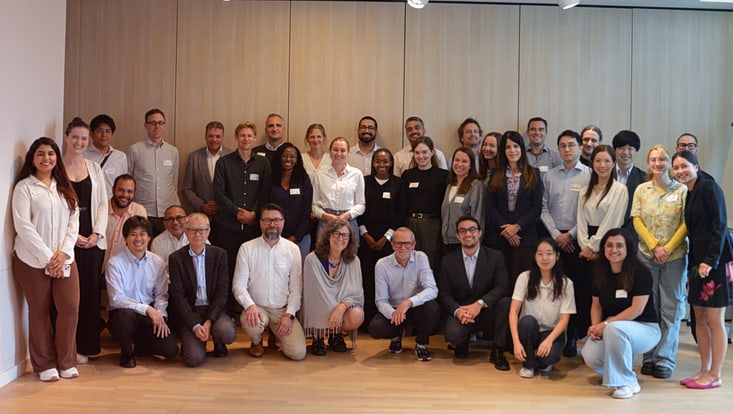and Society (CLICCS)
Sustainable Finance and Decarbonization: What do these terms mean for your business?Sustainable finance has become a key issue for many companies. But what are the current and upcoming regulations in this area, what implications do these have for firms and how can sustainable finance and reporting contribute to decarbonization?
28. Oktober 2021

Foto: Unsplash
The webinar, "Sustainable Finance and Decarbonization: What do these terms mean for your business?", was the first webinar being organized by the B4 Research Group (D°GREES). The webinar was created with a specific focus on the interests of the partnering companies in the research project, which together form the company panel in the B4 project.
The webinar was held twice on Thursday, October 28th – one morning session and one afternoon session. This way, many company representatives on four continents (Asia, Europe, North and South America) had a chance to attend. The webinar was divided into two sections in which Prof. Dr. Alexander Bassen, Prof. Dr. Kerstin Lopatta, and Prof. Dr. Timo Busch presented their insights on current trends in the context of sustainability reporting and sustainable finance, who all are a part of the Research Group on Sustainable Finance at the University of Hamburg.
In the first part, Prof. Dr. Alexander Bassen and Prof. Dr. Kerstin Lopatta presented "Recent Developments in European ESG Reporting Regulations", where they took a closer look at the EU Taxonomy, the Corporate Sustainability Reporting Directive (CSRD), and the Sustainable Finance Disclosure Regulation (SFRD). In addition to providing a general review of these regulations, they emphasized the opportunities and challenges that companies may face in the coming years.
In the second part, Prof. Dr. Timo Busch presented "Impact Investing: what does it entail for firms?" Based on his current research and practitioner networks (e.g., Global Impact Investing Network), Prof. Busch presented a new typology of sustainable investments, differentiating between impact-aligned and impact-generating investments. While impact-aligned investments apply a comprehensive set of exclusion criteria and certain ESG criteria, impact-generating investments may use different strategies to create positive social and environmental change. Prof. Busch also spoke about the possible consequences that impact investing would have for firms. He emphasized, for example, that mere ESG communication and CSR reporting will no longer suffice in the face of increasing data needs. Companies will be required to report data on how capital is being used to produce positive social and environmental changes.
Overall, 40 company representatives attended one of two sessions, raising questions and providing useful feedback for all parties involved. Similar webinars like this one are being planned by the B4 Research Group (D°GREES) in the upcoming year.


